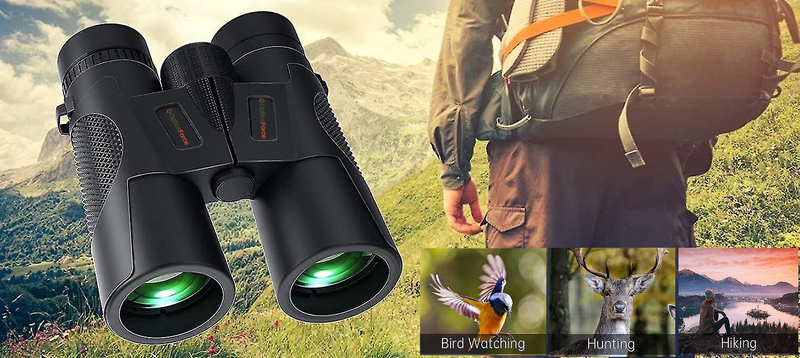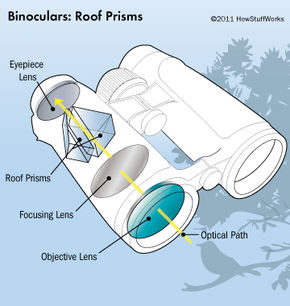Discovering Different Sorts Of Binoculars for Outside Experiences
Discovering Different Sorts Of Binoculars for Outside Experiences
Blog Article
The Relevance of Field Glasses in Education And Learning and Scientific Study: Exactly How These Optical Instruments Add To Learning and Expedition
The combination of binoculars into academic setups and scientific study is frequently neglected, yet their contribution to enhancing observational abilities is considerable. In self-controls varying from environmental scientific research to astronomy, field glasses offer as necessary tools that advertise query and essential thinking.
Enhancing Observational Skills
In instructional and research settings, making use of binoculars dramatically improves observational abilities amongst pupils and specialists alike. These optical tools promote a deeper understanding of remote subjects, enabling users to observe information that would certainly otherwise remain undetected. By utilizing binoculars, learners can analyze wildlife, expensive sensations, and geological developments, fostering a much more profound connection to the subject.
Binoculars work as essential devices in area studies, urging students to involve proactively with their setting. With enhanced monitoring, they can gather information better, resulting in boosted logical abilities. This hands-on experience permits the advancement of important thinking, as trainees must interpret what they see and relate it to academic understanding.

Bridging Theory and Practice
Empirical skills established with making use of field glasses normally bring about a more extensive combination of academic expertise with sensible application. By participating in direct observation, learners can change abstract ideas right into substantial experiences. This synergy promotes a much deeper understanding of scientific concepts as students attach theoretical structures with real-world phenomena.
For example, when researching avian biology, pupils can apply their expertise of bird anatomy and habits with the lens of field glasses, observing attributes such as plumage variation, feeding behaviors, and migratory patterns. This straight involvement not just enhances academic concepts but additionally grows critical reasoning and logical skills.
Furthermore, making use of binoculars motivates learners to develop hypotheses based upon their monitorings, thereby improving their scientific questions skills. They can actively test these theories in the area, causing an extra experiential discovering environment that advertises inquisitiveness and expedition.
Basically, binoculars work as a vital tool in connecting the void between classroom knowing and fieldwork - Binoculars. They equip trainees to come to be active participants in their education and learning, motivating an all natural strategy to recognizing the all-natural globe and its intricacies. Thus, the assimilation of concept and practice is crucial for cultivating educated and engaged learners
Applications in Environmental Scientific Research
Utilizing binoculars in environmental scientific research boosts the capacity to observe and examine environments with greater precision. These optical tools are essential for carrying out field studies, making it possible for scientists to keep track of wildlife populations, assess plant health, and review environment conditions without disrupting the natural environment. Binoculars promote the recognition of species at various ranges, allowing scientists to gather vital information on biodiversity and habits.
In ecological study, binoculars are indispensable tools for ornithologists examining avian actions and movement patterns. They enable scientists to tape-record monitorings over long periods, adding to valuable longitudinal studies - Binoculars. Additionally, field glasses play an important function in habitat assessments, as they enable for the in-depth observation of plant neighborhoods and their interactions within ecosystems
Environmental educators also profit from binoculars, as these instruments enhance experiential understanding chances. Trainees can engage straight with their environments, promoting a deeper appreciation for ecological systems. By incorporating binoculars right into academic programs, teachers can motivate the next generation of environmental scientists.
Duty in Astronomy Education
Using binoculars in astronomy education provides an accessible gateway for students and fanatics to check out holy sensations (Binoculars). Unlike huge telescopes, binoculars are mobile, easy to use, and fairly economical, making them an optimal initial tool for observing the night skies. Pupils can quickly involve with the cosmos, promoting a hands-on learning experience that boosts their understanding of expensive ideas
Binoculars permit customers to observe a range of holy items, including the Moon, planets, and star visit this page collections. Notably, binoculars offer as a bridge to much more complicated expensive tools, giving fundamental experiences that can stimulate deeper passion in the area.
In academic settings, guided binocular sessions can advertise group collaboration and discussion, enhancing the learning experience. The common experience of observing celestial spheres can grow a feeling of neighborhood amongst learners. On the whole, field glasses play a crucial duty in demystifying astronomy, making it approachable and interesting for individuals in any way degrees of education and learning.

Inspiring Inquisitiveness and Questions
Binoculars not only assist in the monitoring of celestial phenomena but additionally fire up a sense of curiosity and questions amongst pupils. By supplying a more detailed consider far-off items, field glasses encourage learners to ask inquiries and discover the setting around them. This device changes passive discovering into an active, engaging experience, fostering a much deeper understanding of scientific principles.
When students make use of field glasses to observe wild animals, landscapes, or astronomical objects, they develop observational abilities that are crucial for scientific query. The act of concentrating on particular information motivates them to formulate hypotheses, conduct investigations, and attract verdicts based on their observations. This process not only boosts their crucial thinking capacities however additionally supports a lifelong passion for exploration.
Furthermore, binoculars can bridge the void between theoretical understanding and real-world application. As trainees observe phenomena firsthand, they can connect classroom finding out blog to functional experiences, making education and learning much more appropriate and purposeful. Eventually, the Check Out Your URL use of field glasses in educational settings acts as a stimulant for inquisitiveness, encouraging pupils to go after expertise with enthusiasm and promoting a sense of marvel about the world around them. In this method, field glasses play a vital role in motivating future generations of scientists and thinkers.
Final Thought
In summary, field glasses offer as vital devices in education and scientific study, substantially boosting observational skills while linking the space between theoretical knowledge and functional application. Their varied applications in fields such as environmental scientific research and astronomy highlight their significance in promoting interest and inquiry among students. By helping with comprehensive exams of far-off subjects, binoculars not just motivate the following generation of scientists but likewise cultivate a profound appreciation for exploration and the clinical method.
Report this page